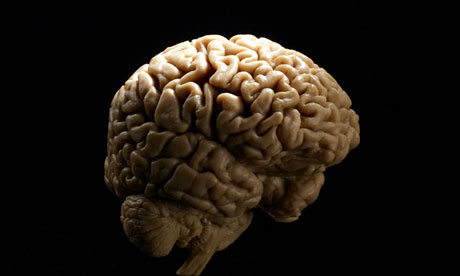We reach more than 65,000 registered users in Dec!! Register Now

Brain network that makes humans smarter than chimps found
- December 06, 2014
- 786 Views
- 0 Likes
- 0 Comment
When it comes to getting out of a tricky situation, we humans have an edge over our evolutionary relatives. Take, for example, the Apollo 13 voyage in which engineers, against all odds, improvised a chemical filter on a lunar module to prevent carbon dioxide buildup from killing the crew. Scientists say ...
When it comes to getting out of a tricky situation, we humans have an edge over our evolutionary relatives. Take, for example, the Apollo 13 voyage in which engineers, against all odds, improvised a chemical filter on a lunar module to prevent carbon dioxide buildup from killing the crew.
Scientists say they have found mounting evidence that helps explain how humans have excelled at “relational reasoning,” a skill in which we discern patterns and relationships to make sense of seemingly unrelated information, such as solving problems in unfamiliar circumstances.
Their findings link such reasoning to subtle changes in brain areas known the frontal and parietal lobes, at the top of the head and behind the forehead. Among other things, the scientists say the network of nerve cell connections in this region-the “frontoparietal network”-aids in analysis, memory retrieval, abstract thinking and problem-solving, and has the fluidity to adapt according to the task at hand.
“This research has led us to take seriously the possibility that tweaks to this network over an evolutionary timescale could help to explain differences in the way that humans and other primates solve problems,” said University of California Berkeley neuroscientist Silvia Bunge, the study's principal investigator.
“It's not just that we humans have language at our disposal. We also have the capacity to compare and integrate several pieces of information in a way that other primates don't,” she added.
In reviewing dozens of studies – including their own – that use brain imaging, neuropsychology, developmental cognitive and other methods, the researchers concluded that anatomical changes in the lateral frontoparietal network over millennia have boosted our reasoning.
There is “supporting evidence across species,” added Michael Vendetti, co-author of the study and a postdoctoral researcher in neuroscience at UC Berkeley.
In relational reasoning, we make comparisons and find equivalencies, as one does in algebra, for example. “First-order” comparisons identify several types of relationship between two items or activities: semantic (hammer is used to hit a nail); numeric (four is greater than two); temporal (we get out of bed before we go to work) or visuospatial (the bird is on top of the house). “Second-order” or higher-order comparisons take this a step further by equating two or more sets of first-order relations (a chain is to a link as a bouquet is to a flower).
The researchers identified three brain areas key to relational reasoning, called the rostrolateral prefrontal cortex, the dorsolateral prefrontal cortex and the inferior parietal lobule, with the rostrolateral region more actively engaged in second-order relational reasoning.
Also crucial to their finding was a study led by Oxford University neuroscientist Matthew Rushworth that compared neural patterns in humans and macaque monkeys. While humans, apes and monkeys found to share similarities in the frontal and parietal brain regions, activity in the human rostrolateral prefrontal cortex differed significantly from that of the macaque monkey's frontal cortex, the study found.
“We had hypothesized that there could have been evolutionary changes to this region to support our reasoning ability, so we were really excited when Rushworth and his colleagues came out with these findings,” Vendetti said.
Meanwhile, in the behavioral studies they analyzed, humans were found to use higher-order strategies to guide their judgment while non-human primates relied more heavily on perceptual similarities and were slower at reasoning and problem-solving.
“These results do not necessarily prove that non-human primates are unable to reason using higher-order thinking, but if it is possible to train non-humans to produce human-like performance on tasks associated with higher-order relational thinking, it is certainly not something that comes naturally to them,” the study concluded. The work is published in the Dec. 3 issue of the journal Neuron.
Source : www.world-science.net









